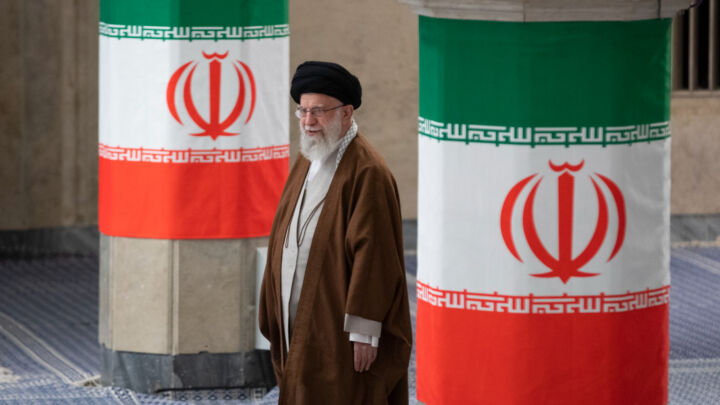Labour, you can’t ban anti-Semitism

Want unlimited, ad-free access? Become a spiked supporter.
‘The Labour Party is not overrun by anti-Semitism’, writes Shami Chakrabarti in her report on anti-Semitism in the Labour Party. The report’s sober conclusion was mildly refreshing given the hyperbolic coverage of Labour over the past few months, which, at points, has suggested it is a hotbed for Hitlerphiles.
This is not to suggest Chakrabarti doesn’t think there is a problem. She writes, for example, of the ‘ignorant attitudes and behaviours festering within a sometimes bitter incivility of discourse’. But this is as applicable to the UK in general as it is to Labour specifically. In fact, Labour’s anti-Semitism problem could be viewed as an amplified form of anti-Semitic discourse within society as a whole.
But the most worrying aspect of Chakrabarti’s report was not the findings themselves, but the reaction to them. Indeed, the report only started to attract public attention after Ruth Smeeth, a Jewish Labour MP, left the launch event in tears, having effectively been accused by a pro-Corbyn Labour activist of being part of a Jewish media conspiracy.
Smeeth’s distress was understandable. But her subsequent assertion that a ‘Labour Party under [Corbyn’s] stewardship cannot be a safe space for British Jews’ was an attempt to exploit a nasty comment for political ends. After all, can Corbyn really be blamed for the actions of a misinformed and insensitive nobody?
Smeeth had every right to question why the activist was invited. But her decision to use the incident as part of the attempt to oust Corbyn completely debases the fight against anti-Semitism. An opportunity to highlight an increasingly acceptable form of prejudice has been turned into yet another piece of anti-Corbyn posturing. And in doing so, Smeeth only reinforced the sense that anti-Semitism is still not being taken seriously.
Corbyn’s own reaction to the report was also far from perfect. ‘Our Jewish friends are no more responsible for the actions of Israel or the Netanyahu government’, he said, ‘than our Muslim friends are for those of various self-styled Islamic states or organisations’. But if Corbyn’s decision to greet Chakrabarti’s report by drawing a crude analogy between Israel and ISIS was bad, his feeble proposals for dealing with anti-Semitism were far worse.
He boldly announced that the term ‘Zio’ has ‘no place in our party’ and that Labour members should avoid using the language of Hitler and the Holocaust. What this forgets is that prejudice of any sort – particularly anti-Semitism – can never be truly combatted by policing language. Simply banning the language of anti-Semitism is no substitute for tackling the attitude which that language expresses.
If the Labour Party really wants to combat anti-Semitism, it needs to allow the prejudiced to air their views. Only then, in the cut and thrust of open debate, can those views be addressed and refuted.
Just censoring the word ‘Zio’ leaves the sentiment it expresses untouched. And it’s the sentiment, not the words, that needs to be tackled.
Jacob Furedi is a writer and student.
You’ve hit your monthly free article limit.
Support spiked and get unlimited access.
Support spiked and get unlimited access
spiked is funded by readers like you. Only 0.1% of regular readers currently support us. If just 1% did, we could grow our team and step up the fight for free speech and democracy.
Become a spiked supporter and enjoy unlimited, ad-free access, bonus content and exclusive events – while helping to keep independent journalism alive.
Monthly support makes the biggest difference. Thank you.









Comments
Want to join the conversation?
Only spiked supporters and patrons, who donate regularly to us, can comment on our articles.